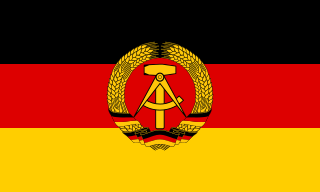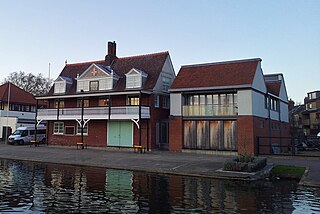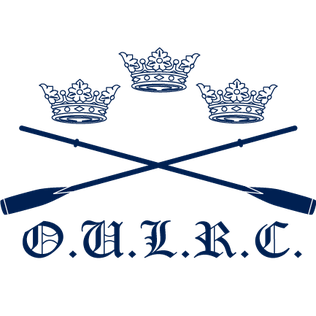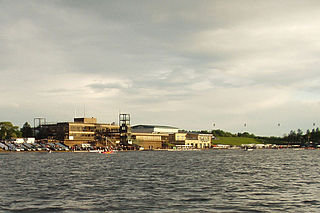| Personal information | |||||||||||||||
|---|---|---|---|---|---|---|---|---|---|---|---|---|---|---|---|
| Born | 9 January 1976 | ||||||||||||||
| Sport | |||||||||||||||
| Sport | Rowing | ||||||||||||||
Medal record
| |||||||||||||||
Klaus Klotz (born 9 January 1976) is a German lightweight rower. He won a gold medal at the 1996 World Rowing Championships in Motherwell with the lightweight men's eight. [1]
| Personal information | |||||||||||||||
|---|---|---|---|---|---|---|---|---|---|---|---|---|---|---|---|
| Born | 9 January 1976 | ||||||||||||||
| Sport | |||||||||||||||
| Sport | Rowing | ||||||||||||||
Medal record
| |||||||||||||||
Klaus Klotz (born 9 January 1976) is a German lightweight rower. He won a gold medal at the 1996 World Rowing Championships in Motherwell with the lightweight men's eight. [1]

Rowing has been part of the Summer Olympics since its debut in the 1900 Games. Rowing was on the program at the 1896 Summer Olympics but was cancelled due to bad weather. Only men were allowed to compete until the women's events were introduced at the 1976 Summer Olympics in Montreal which gave national federations the incentive to support women's events and catalysed growth in women's rowing. Lightweight rowing events were introduced to the games in 1996. Qualifying for the rowing events is under the jurisdiction of the World Rowing Federation. World Rowing predates the modern Olympics and was the first international sport federation to join the modern Olympic movement.

Athletes from East Germany competed at the 1972 Summer Olympics in Munich, West Germany. 297 competitors, 231 men and 66 women, took part in 161 events in 18 sports.

Lightweight rowing is a category of rowing where limits are placed on the maximum body weight of competitors. According to the International Rowing Federation (FISA), this weight category was introduced "to encourage more universality in the sport especially among nations with less statuesque people".

The Cambridge University Boat Club (CUBC) is the rowing club of the University of Cambridge, England. The club was founded in 1828 and has been located at the Goldie Boathouse on the River Cam, Cambridge since 1882. Nowadays, training primarily takes place on the River Great Ouse at Ely.

Athletes from East Germany and West Germany competed together as the United Team of Germany for the last time at the 1964 Summer Olympics in Tokyo, Japan. 337 competitors, 275 men and 62 women, took part in 159 events in 19 sports.

The 2011 World Rowing Championships were World Rowing Championships that were held from 28 August to 4 September 2011 at Lake Bled, adjoining the Slovenian city of Bled. The annual week-long rowing regatta is organized by World Rowing Federation (FISA), and held at the end of the northern hemisphere summer. In non-Olympic Games years the regatta is the highlight of the international rowing calendar, and in the year prior to the Olympics it is the main qualification event for the following year's Olympics.

Peter Taylor is a former New Zealand rower. He became world champion in 2009 in men's lightweight double scull.

Oxford University Lightweight Rowing Club (OULRC) was the university rowing club for lightweight men at the University of Oxford which selected crews to race against Cambridge University Boat Club in the Lightweight Boat Races at the end of Hilary term. These races are usually held in late March each year.

The 1979 World Rowing Championships were World Rowing Championships that were held from 30 August – 9 September 1979 at Bled in Slovenia, Yugoslavia.
The 1984 World Rowing Championships were World Rowing Championships that were held on 26 August 1984 in Montreal, Quebec, Canada. Since 1984 was an Olympic year for rowing, the World Championships did not include Olympic events scheduled for the 1984 Summer Olympics.

The men's coxed pair competition at the 1972 Summer Olympics in Munich took place from 27 August to 2 September at the Olympic Regatta Course in Oberschleißheim. There were 21 boats from 21 nations, with each nation limited to a single boat in the event. The event was won by East German crew Wolfgang Gunkel, Jörg Lucke, and coxswain Klaus-Dieter Neubert; it was the first medal in the event for East Germany as a separate nation. Czechoslovakia (silver) and Romania (bronze) also won their first medals in the men's coxed pair.
The 1974 World Rowing Championships was the fourth World Rowing Championships. It was held from 4 to 8 September 1974 and from 29 August to 1 September 1974 on the Rotsee in Lucerne, Switzerland. The event was significantly extended from the 1970 edition, with the addition of both women's and lightweight men's events. Six women boat classes were added, three lightweight men classes, plus quad scull for men, increasing the number of boat classes from seven in 1970 to seventeen in 1974. This was also the last World Championships held on a quadrennial cycle – from this point, World Championships were held annually.
The 1986 World Rowing Championships were World Rowing Championships that were held from 17 to 24 August 1986 at Nottingham in the United Kingdom.

The 1975 World Rowing Championships was the fifth World Rowing Championships. It was held from 21 to 30 August at Holme Pierrepont National Watersports Centre in Nottingham, England, United Kingdom.
The 1977 World Rowing Championships was the 6th World Rowing Championships. The championships were held from 19 to 28 August 1977 on the Bosbaan rowing lake in Amsterdam, Netherlands.

The Oxford University Women's Lightweight Rowing Club was established in 1984 to represent the University of Oxford in the race against the Cambridge University Boat Club at the Lightweight Boat Races. Throughout the season, the Club races as Tethys Boat Club.

The men's coxed pair competition at the 1960 Summer Olympics took place at took place at Lake Albano, Italy. It was held from 31 August to 3 September. There were 18 boats from 18 nations, with each nation limited to a single boat in the event. The three nations on the podium were the same as those in 1956, though in a different order. The event was won by the United Team of Germany, with Bernhard Knubel and Heinz Renneberg rowing with Klaus Zerta the coxswain. Zerta is the youngest confirmed male gold medalist in Olympic history at 13 years and 283 days, just beating Hans Bourquin by 9 days. The 1900 men's coxed pair gold-medal-winning coxswain may have been younger, but the identities and ages of most coxswains in that event, including the gold medalist, are not known. The Soviet Union, bronze in 1956, took silver this time with Antanas Bagdonavičius, Zigmas Jukna, and Igor Rudakov. Defending champions the United States took bronze; Conn Findlay was the only man from the 1956 podium to return, this time with Richard Draeger as his rowing partner and Kent Mitchell the coxswain.
The 1978 FISA Lightweight Championships were held in Copenhagen, Denmark from 3 to 6 August 1978. In the history of the World Rowing Championships, 1978 was the only year when the lightweight rowing championships were not held in conjunction with the open men and women event. The lightweight finals were raced on 6 August. The event was held at Lake Bagsværd. In 1978, a fourth boat class was added to the event: Lightweight double scull.
Andrea Re is an Italian lightweight rower. With eight gold medals at World Rowing Championships, he is one of the most successful rowers ever. He represented Italy at the 1996 Summer Olympics in Atlanta, USA.
Klaus Altena is a German lightweight rower. He won a gold medal at the 1989 World Rowing Championships in Bled, Slovenia and 1990 in Tasmania, Australia with the lightweight men's four.